Many of us use costly elephants to do jobs that don't need an elephant. What do I mean?
In a small household of one or two people, the elephants are the machines bigger than are needed for everyday - such as the washing machine that takes 20 minute and 75 litres for a few clothes that really only need freshening, the 1 tonne car for six people plus luggage with only one person in it, the power motor for a pocket lawn, the ducted heating for a house when the occupants are in only one room.
What can be done? Sometimes there are many people in the house, or small children or sickness, or time-demanding jobs, so that these elephants are useful at particular times. But not always.
Some people solve this by living in group houses that share the big appliances.
Another solution is to have homes with space for 'small elephants' as well, for everyday help. These can include a versatile little twin- tub, which makes even hand-washing easy, a carpet-sweeper, a light hand-mower, a bicycle, motor-scooter or minicar, and a way to shut doors of singly-heated rooms or to use environmental ways of keeping warm. Over time you save the cost of buying these- and often they can be bought cheaply second-hand, since they cost less to use, as well as being responsible for less greenhouse gas. The big elephants also last longer, with less use (if a way is found to stop car batteries going flat).
Quality of life includes comfort. Average Westerners live in comfort unthought of even in my childhood - but risk it all in part through unnecessary excess. This excess is paid for by our future, through its effects in helping to drive climate changes, resource shortages, pollutions and environmental damage.
The big problem - our economy is at present geared to require average Westerners to live with excess to keep the wheels turning and the whole show 'growing'. So there is excessive production, advertising, carbon emissions and waste.
Let us imagine one of the ways in which we could still live in comfort, but without wasteful production and wasteful trashing.
We could stop always using elephants at the times that we may only need miniatures.
If we could travel in a small two-seater car when we did not need the family size. (And of course, when public transport or walking is possible, take those options.)
If we could do the laundry with a water-saving power-saving twin-tub when we did not need the full power-washing machine. (And there is always hand laundry too).
If we could cool the room with a fan to stay under 24 degrees when frail people did not need the air-conditioner (and of course have insulation and all that too).
If we could warm ourselves with clothing and exercise and some neat innovations to keep a bit of local warming around us over twelve degrees, so we did not need space-heating (and of course have insulation and all that too).
If we could dry our laundry in the fresh air when emergencies of climate or illness did not make indoor drying a boon.
If we could use drip-dry so that we never had to iron except for special things at special times.
If we could give our small lawns the 'Australian lawn' look with a fast light hand-mower when we did not have large areas of bumpy lawns needing power mowing. (The 'Australian look' for lawns is unwatered dry brown in summer, resulting in a fair amount of green flatweeds in with the actual grass in winter, mowed to look tidy and lush, but not the close-shaven English lawn.)
If we could use fast economical washing-up methods with top basins, soap and a proper dish-rack - no tea-towel drying - for when we did not need the full dishwasher load for piles of dishes.
If we could sweep with a broom, or brush with a carpet-sweeper, for when we do not really need the full vacuum cleaning.
If we could use - and re-use - modern no-pins simple-wash snazzy cloth nappies, keeping disposables as a boon for the emergencies of travel or illness.
If we had durable clothes that we could adapt to the latest fashion with accessories, as Korean girls used to do with their national dress.
If we had a kitchen system that used and re-used everything - including bones for soup and scraps for worm-farms - so that the trash- bin hardly ever had to go out for collection, and the recycling bin only sometimes.
If our gardens could be used for healthy outdoor exercise, including gardening, and operated on its own environmental cycle with the help of kitchen scraps and even human liquid sewage (saving flushing and water bills) and with minimum or no input of problematic items like artificial fertilisers and no environmental spoilers like river sands or mosses.
If we kept healthy with 'thrifty housework exercise' and the walking substitute for the car. We could 'lift weights' with buckets for using grey-water or tank-water.
If we shopped with a quality waterproof shopping jeep.
If our kitchen equipment was minimum plastic, so that it was durable.
If we could bake food in the ashes of a garden stove fuelled with prunings and other unusables.
If on hot days we could bake with a solar reflector oven, and heat water outside in buckets. And shower outside from the tank.
What does this do for the economy?
It would mean that lucky people would have to have the space to keep these 'mini-aids' as well as the elephants, or have some sort of neighborly sharing system.
Our present wasteful housing design must be more flexible. Acres of new housing are going up with wasteful designs and materials and 15-year lives - how can this be stopped?
Jobs and businesses would be needed to supply 'little elephant' duplicates for everyone. But the equipment would be durable and updateable - so would not have to be chucked out through built-in obsolescence. So with a stable population, markets would not be infinitely expandable, and manufactures would need to be more flexible.
But the equipment would all be repairable - and it would be worth our while to have jobs for repairers. Repairing tends to be a field for small businesses rather than multinationals. At present, far too much is thrown out 'to save labour' - the cost of mending is too often more than the cost of buying new, unless you count in future cost that you yourself do not pay - the cost of all this wasted embedded carbon and raw materials and energy for the making and freighting.
But what does this saving and re-using do for variety in life? People today throw out socks just to have the variety of new ones. Rethink the variety needed in life - to enjoy the biodiversity, the social-diversity, the immense amount of variety in thinking and imagination and creativity and learning about the world. You don't need to buy a new thingo. Or a new big elephant.
See also Valerie Yule's home page at home.vicnet.net.au/~ozideas including Economic & Political Ideas, Planned Obsolescence of 27 May 07, Cutting waste - saving the planet without destroying economies of 7 Feb 08, Unchecked consumption will waste the planet of 31 Oct 07, Rubbishing on about plastic bags of 30 Apr 08, Climate Change at Animal F of 28 Feb 08.

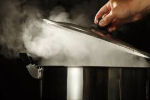 Waleed Aly ("A Rhetorical State of Emergency," Sydney Morning Herald, 12 September 2019,) has dressed up banality as insight and has been very long-winded about it. His focus is climate change and he laments the fact that we have so "engineered a lack of [political] consensus" that Australia is never likely to successfully address it.
Waleed Aly ("A Rhetorical State of Emergency," Sydney Morning Herald, 12 September 2019,) has dressed up banality as insight and has been very long-winded about it. His focus is climate change and he laments the fact that we have so "engineered a lack of [political] consensus" that Australia is never likely to successfully address it.
 France has banned fracking, but the United States is allowing lateral mining to utterly demolish democracy and people are facing destitution and starvation because of the lack of citizen rights in the United States to protect farm and town water. Here are some quotes from the film: "Using our resources against us"... "Greed and money: they're just sucking all of the water out of the ground. Why can't I have a say? Why can't these oil companies understand?"..."We've got to have some restrictions on mining... "If we run out of water, we're going to have to pump it in and it will cost more than oil. So why do you think the people of this town should be quiet about it?" In the face of a winner takes all, some farmers are caving in and trading farming in for mining and selling off their water. "... If you've got to have the oil you have to use the water. The demand is out there." Australia's government is going the same way as the United States.
France has banned fracking, but the United States is allowing lateral mining to utterly demolish democracy and people are facing destitution and starvation because of the lack of citizen rights in the United States to protect farm and town water. Here are some quotes from the film: "Using our resources against us"... "Greed and money: they're just sucking all of the water out of the ground. Why can't I have a say? Why can't these oil companies understand?"..."We've got to have some restrictions on mining... "If we run out of water, we're going to have to pump it in and it will cost more than oil. So why do you think the people of this town should be quiet about it?" In the face of a winner takes all, some farmers are caving in and trading farming in for mining and selling off their water. "... If you've got to have the oil you have to use the water. The demand is out there." Australia's government is going the same way as the United States. The way The Australian writes him up, Tim Flannery, who once wrote so articulately in defense of our land and its ecology and our place in it, now seems reduced to a quasi-apologist for extreme mining technologies. The Australian writes in such an unbalanced way. See also
The way The Australian writes him up, Tim Flannery, who once wrote so articulately in defense of our land and its ecology and our place in it, now seems reduced to a quasi-apologist for extreme mining technologies. The Australian writes in such an unbalanced way. See also 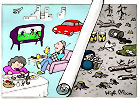 This article makes it clear that energy consumption and its fall-out, pollution, have enormously increased over two or three generations, to a point where actions commonly recommended to minimise them, are laughably inadequate. It also highlights a tendency for one generation to be encouraged to blame another generation for overconsumption, rather than to blame the market system, which benefits from the social conflict.
This article makes it clear that energy consumption and its fall-out, pollution, have enormously increased over two or three generations, to a point where actions commonly recommended to minimise them, are laughably inadequate. It also highlights a tendency for one generation to be encouraged to blame another generation for overconsumption, rather than to blame the market system, which benefits from the social conflict.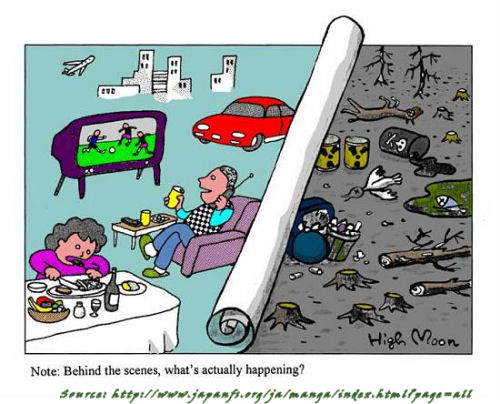
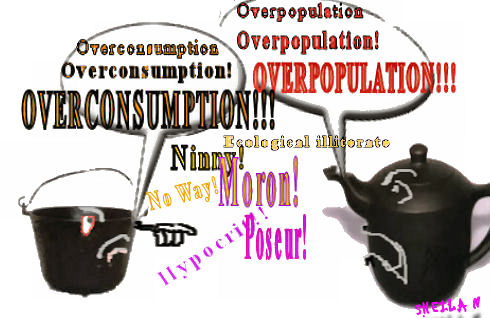
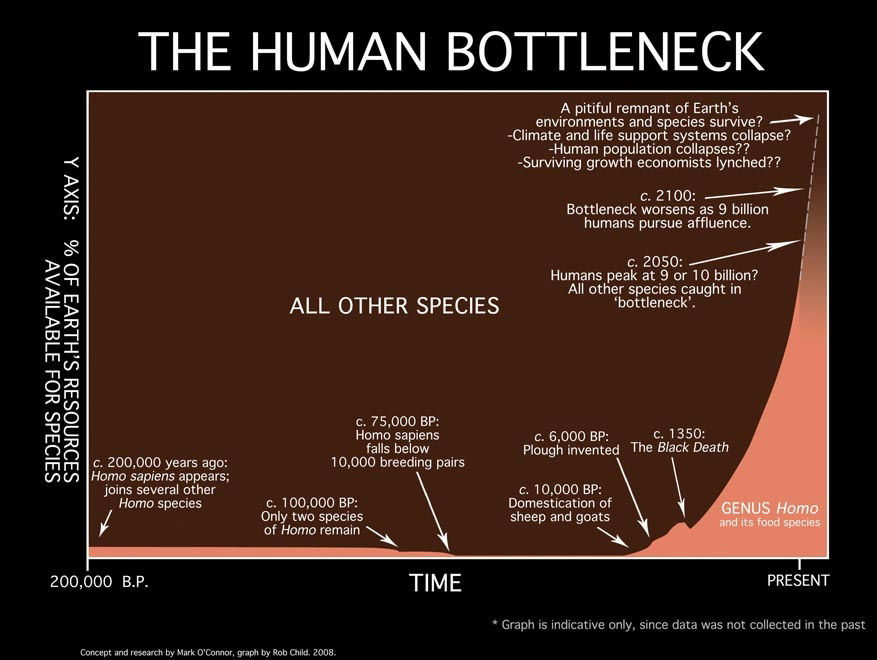
Recent comments